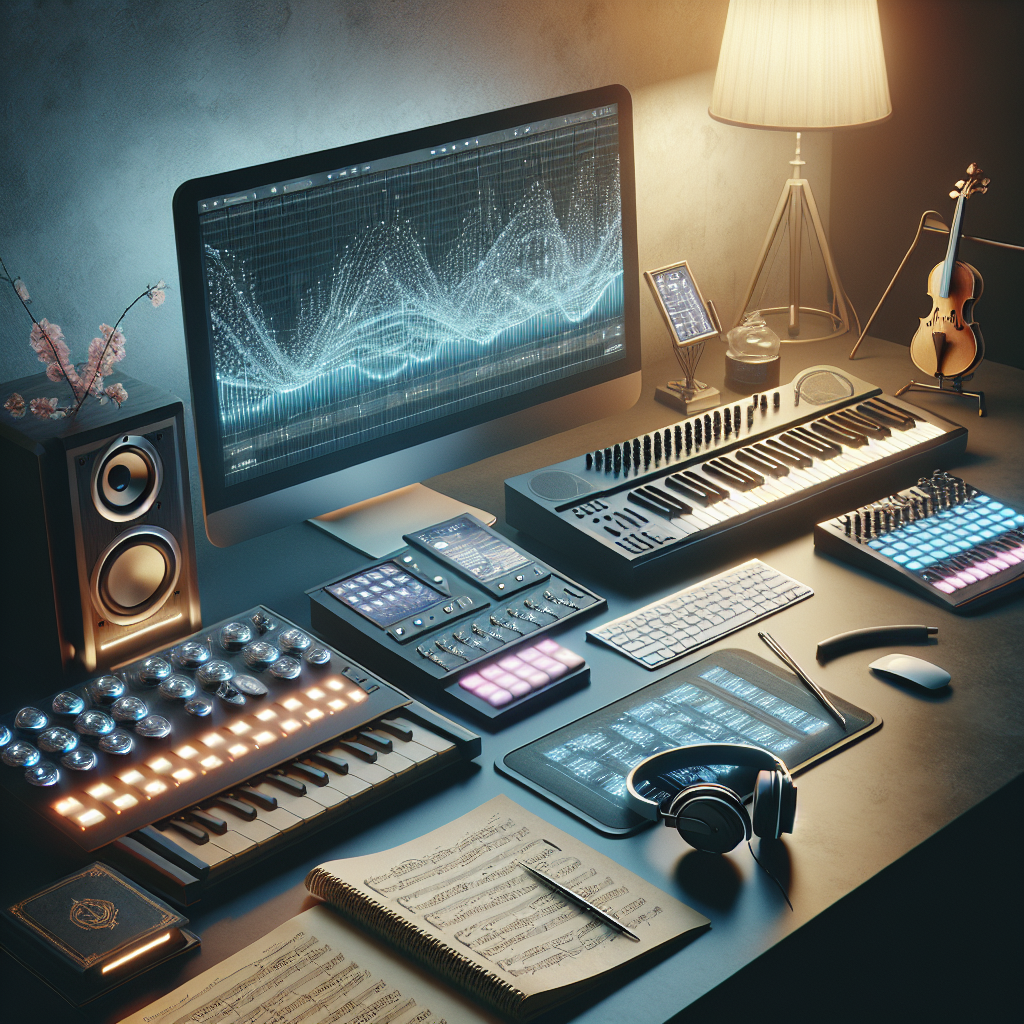AI Tools for Enhancing Music Composition
Music composition is a complex and creative process that has been evolving for centuries. With the advancement of technology, composers now have access to a wide range of tools that can help them in creating and enhancing their music. One of the most exciting developments in this field is the use of artificial intelligence (AI) tools for music composition. AI tools have the potential to revolutionize the way music is created, offering composers new possibilities and opportunities for experimentation.
AI tools for music composition use algorithms to analyze and generate music. These tools can help composers in a variety of ways, from generating melodies and harmonies to providing suggestions for chord progressions and arrangements. By harnessing the power of AI, composers can explore new creative avenues and push the boundaries of what is possible in music composition.
There are several AI tools available that can assist composers in enhancing their music composition. Some of the most popular ones include:
1. Amper Music: Amper Music is an AI music composition tool that allows composers to create custom music tracks in a matter of minutes. Users can input parameters such as mood, tempo, and instrumentation, and the AI algorithm will generate a unique music track based on these inputs. Amper Music is a great tool for composers who are looking to quickly create high-quality music for their projects.
2. AIVA: AIVA is an AI composer that uses deep learning algorithms to generate original music compositions. Composers can input a melody or a chord progression, and AIVA will generate a full orchestral arrangement based on these inputs. AIVA is a versatile tool that can be used for a wide range of music genres, from classical to electronic.
3. Google Magenta: Google Magenta is an open-source project that aims to explore the creative potential of AI in music composition. Magenta offers a range of tools and resources for composers, including AI models for generating melodies, harmonies, and drum patterns. Composers can also use Magenta’s tools to experiment with machine learning and create their own AI compositions.
4. IBM Watson Beat: IBM Watson Beat is an AI music composition tool that uses machine learning algorithms to generate music based on a set of musical parameters. Composers can input parameters such as genre, mood, and instrumentation, and Watson Beat will generate a unique music track based on these inputs. Watson Beat is a powerful tool for composers who are looking to experiment with AI in their music composition process.
5. Humtap: Humtap is an AI-powered music composition tool that allows composers to create music by humming or singing into their device. The AI algorithm analyzes the user’s input and generates a full music track based on the melody and rhythm of the user’s voice. Humtap is a fun and intuitive tool that can help composers quickly generate ideas for their music compositions.
FAQs:
Q: Can AI tools completely replace human composers?
A: While AI tools have the potential to assist composers in their creative process, they cannot completely replace human composers. Music composition is a deeply personal and creative process that involves emotions, intuition, and artistic expression, which are qualities that AI algorithms cannot replicate. AI tools can assist composers in generating ideas and exploring new possibilities, but ultimately, the final decision-making and creative input still lie with the human composer.
Q: Are AI-generated compositions considered original works?
A: The question of whether AI-generated compositions are considered original works is a complex and debated topic. In most cases, AI-generated compositions are considered to be original works if they are created using original algorithms and inputs. However, there are legal and ethical implications to consider when using AI tools for music composition, especially in terms of copyright and intellectual property rights. It is important for composers to be aware of these implications and to seek legal advice if necessary.
Q: How can composers benefit from using AI tools in music composition?
A: Composers can benefit from using AI tools in music composition in a variety of ways. AI tools can help composers in generating new ideas, exploring different musical styles, and expanding their creative horizons. AI tools can also help composers in saving time and effort in the composition process, allowing them to focus on the more creative aspects of music composition. Additionally, AI tools can provide composers with opportunities for collaboration and experimentation, leading to new and innovative music compositions.
In conclusion, AI tools for music composition offer composers new possibilities and opportunities for creativity. By harnessing the power of AI algorithms, composers can explore new musical territories, generate ideas, and enhance their music compositions in ways that were previously unimaginable. While AI tools cannot replace human composers, they can assist and inspire them in their creative process, leading to new and exciting music compositions. As technology continues to advance, the future of music composition looks bright and full of possibilities with AI tools at its forefront.

